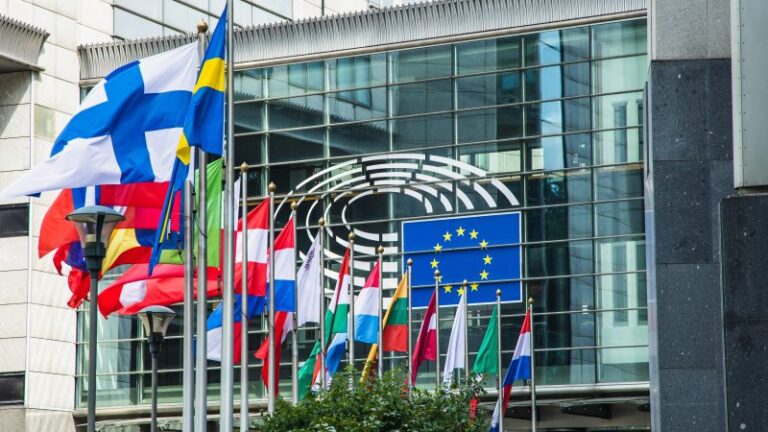The European Parliament’s Environment and Health Committee (ENVI) has had a huge workload over the past five years of its term and will be split up so that it no longer deals with health and food safety, said Peter Liese, a leading centre-right EU lawmaker.
The European Parliament has 20 standing committees through which the majority of EU lawmakers’ work is carried out. Their work is supported by four sub-committees.
But after the EU elections, the European People’s Party, the largest party in parliament, wants to change that structure to accommodate the increasing number of bills going through the Health and Security Committee, known as ENVI.
“ENVI will be divided,” Liese, a German European People’s Party MEP responsible for environment and health issues, told reporters on Tuesday (July 2).
While the issue is not “100 percent resolved,” Riese believes there is “growing consensus among the leaders of the various groups” and expects a decision to be made by next week.
He explained that the split would create a “Health and Food Safety Committee” separate from ENVI, which would continue to be responsible for drafting environmental and climate legislation.
Currently, the SANT Committee, established in February 2023 and focused on public health, exists as a subcommittee subordinate to ENVI with a more limited mandate.
Over the past five years, ENVI has been working alongside dozens of pieces of legislation to implement the European Commission’s flagship Green Deal policy, and address the impacts of the COVID-19 pandemic.
But other political groups remain unconvinced that a split will materialize.
S&D Group told Euraactive it would continue to oppose the move because it is a “strong supporter” of the One Health approach, which considers the linkages between human, animal and ecosystem health.
“We believe this can be best implemented in collaboration with a subcommittee of the ENVI Commission,” a spokesman for the centre-left group said.
Several sources working for the S&D Group and the Green Party in the European Parliament told Euraactive that the situation was not yet clear.
German members of the liberal “Renew” group see the proposed split as an important step towards the establishment of a permanent committee focused on defence, one of their priorities. S&D is ready to support this, but only on the condition that a permanent human rights committee is also established.
Some on the left worry that ENVI could be dismantled, given its track record as a major progressive player in environmental law. For example, regulating pollutants such as PFAS, also known as forever chemicals, is expected to be more difficult under the proposed new deal.
“ENVI has been successful in securing better protections through stronger policies that reduce exposure to air pollution and health-damaging chemicals,” said Ann Stauffer, vice president of the environmental NGO HEAL, who urged lawmakers to keep the commission in place.
*Maria Simon Arboreas, Max Gurriera and Sofia Sanchez Manzanaro contributed to this report
[Edited by Donagh Cagney/Zoran Radosavljevic]


